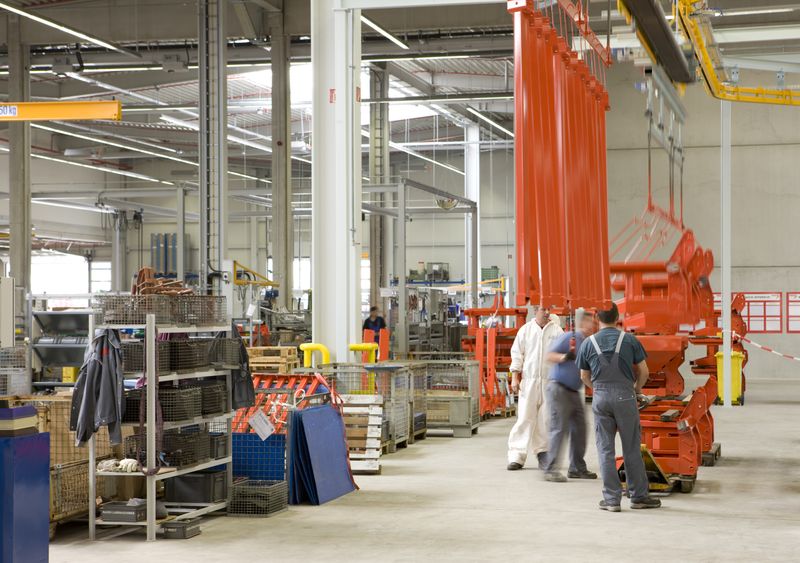Employment structure
The employment structure reflects the change in employment across occupations and sectors, using various proxies of job quality. The current debate about shifts in the employment structure is focused on the extent to which observed patterns of job polarisation and upgrading have contributed to wage inequality trends and on Europe's shrinking middle class.

Latest
Find the latest content on this topic below.
17 September 2025
4 September 2025
2 September 2024
The fast and steady recovery in employment following the COVID-19 pandemic in the EU benefited from proactive policy responses to the crisis and from resilient labour markets. Almost 90% of regions across the EU had exceeded their pre-pandemic employment levels by 2022; however, significant regional disparities remain. EU regions fared differently, depending on their economic specialisation and notably on the concentration of jobs in knowledge-intensive services that can be performed remotely. The geography of telework across EU regions was primarily shaped by differences in occupational structure, and fast internet connectivity remains an essential enabling factor. Recent initiatives to support remote work in rural, peripheral or marginalised areas through the creation of coworking spaces show how dynamism and diversity in rural economies can be promoted.
Highlights for Employment structure
This is a selection of the most important outputs for this topic.
14 December 2021
European Jobs Monitor 2021: Gender gaps and the employment structure
One of the most striking developments of the last half-century has been the huge rise in the labour market participation of women. Two out of every three net new jobs created over the last two decades in the EU were taken by women. At the same time, sharply rising employment rates among older workers due to population ageing and policy changes have increased the share of older workers in the labour market. This report examines the impacts of the changing contours of labour supply on the employment structure over the last quarter-century in Europe (1995–2019). The primary focus is on gender, with a secondary focus on ageing. Among the main findings are that employment shares in gender-balanced jobs have declined despite the rising female share of employment and that gender pay gaps are highest in well-paid jobs.
2 May 2023
European Jobs Monitor (EJM)
7 October 2019
European Jobs Monitor 2019: Shifts in the employment structure at regional level
Accumulating evidence indicates that large metropolitan centres are faring much better than other regions within the Member States of the EU. Such interregional inequality contributes to disenchantment with existing political systems, which in turn can weaken the social bonds that ground democratic systems. This is the context for the 2019 edition of the European Jobs Monitor, which analyses shifts in the employment structure – meaning change in the distribution of employment across occupations and sectors – of the EU regions. The analysis covers 130 regions of 9 Member States, which together account for nearly 4 out of 5 EU workers. The study finds that, while Member States are becoming more similar in their employment structures, regions within the same country are becoming more disparate. It also finds that cities have a disproportionately high share of well-paid, high-skilled services employment alongside growth in low-paid employment. The findings support continued EU regional policy assistance of regions in danger of being left behind.
Experts on Employment structure
Researchers at Eurofound provide expert insights and can be contacted for questions or media requests.
Carlos Vacas‑Soriano
Senior research managerCarlos Vacas Soriano is a senior research manager in the Employment unit at Eurofound. He works on topics related to wage and income inequalities, minimum wages, low pay, job quality, temporary employment and segmentation, and job quality. Prior to joining Eurofound in 2010, he worked as a macroeconomic analyst for the European Commission and as a researcher in European labour markets at the Spanish Central Bank. He holds an MA in European Economic Studies from the College of Europe in Bruges and a PhD in Labour Economics from the University of Salamanca (Doctor Europaeus).
John Hurley
Senior research managerJohn Hurley is a senior research manager in the Employment unit at Eurofound. He took up the role of research manager in February 2012. He contributes to a number of research projects including the European Jobs Monitor and has authored or co-authored over 20 reports as well as journal contributions and edited collections during his time at Eurofound. His main research interests are in the areas of comparative labour market analysis, restructuring and the changing world of work. John is a graduate of both Trinity College Dublin and University College Dublin.
All content for Employment structure
This section provides access to all content that has been published on the topic.